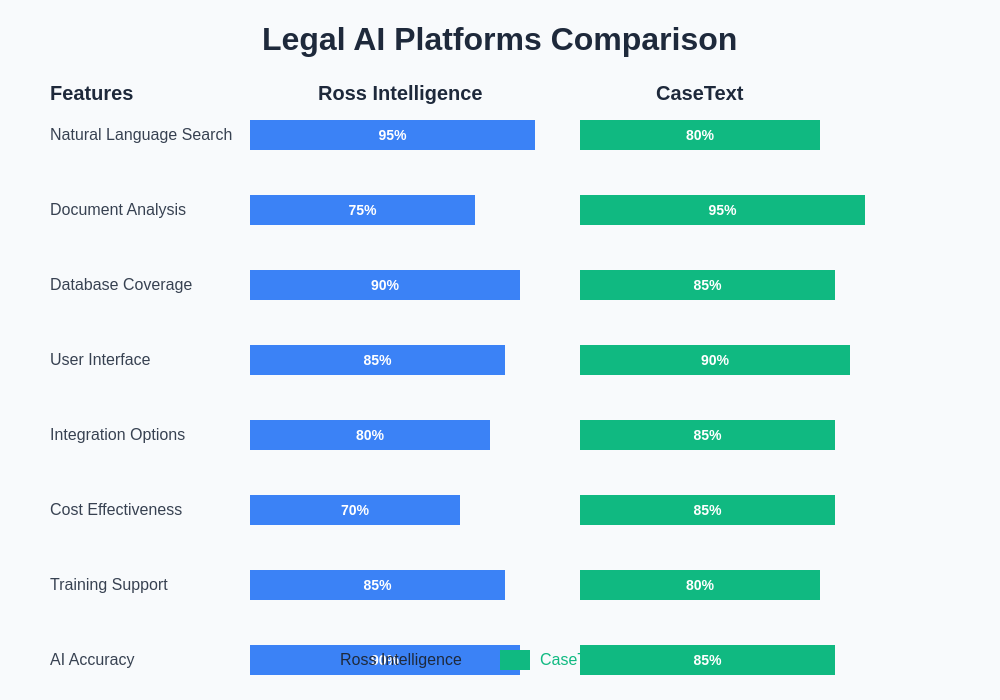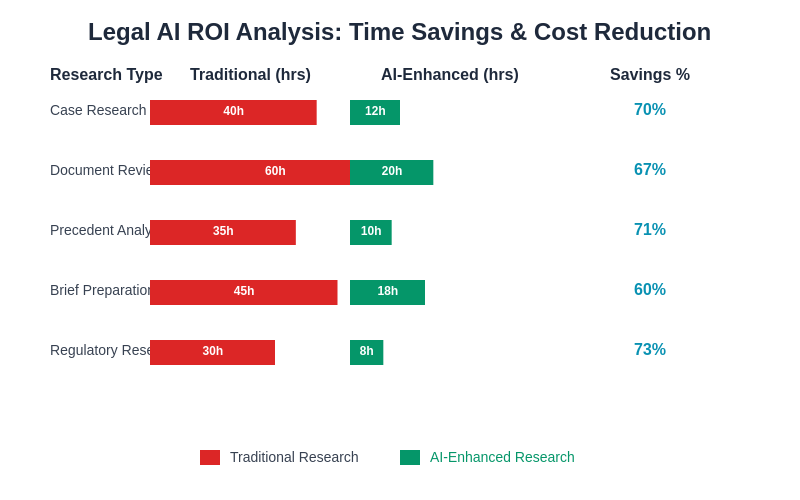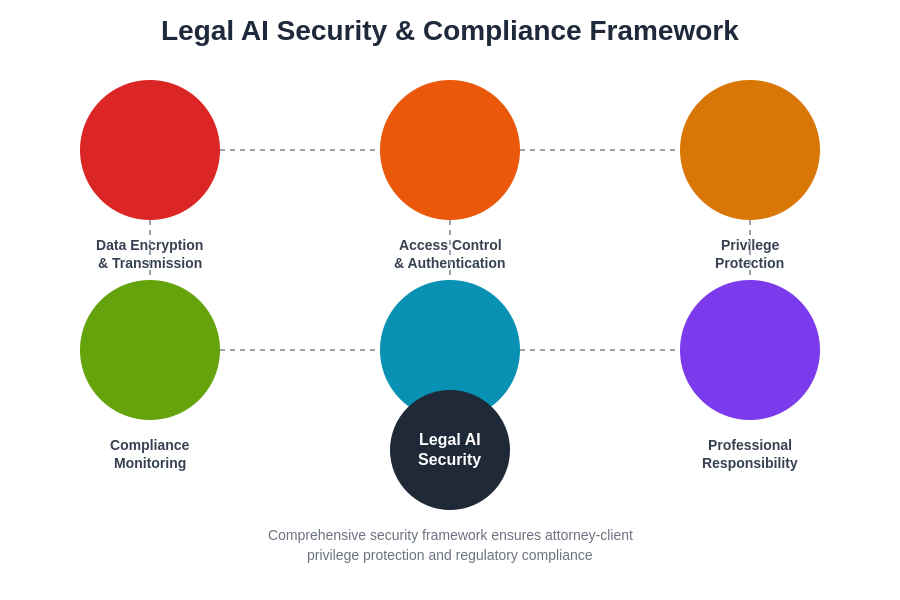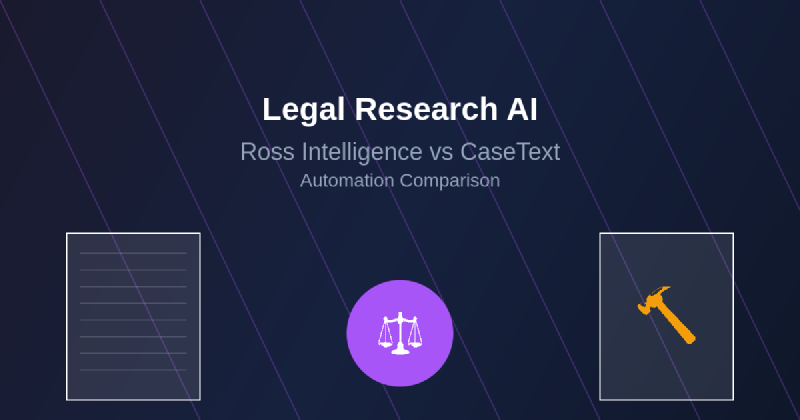The legal profession has entered a transformative era where artificial intelligence fundamentally reshapes how attorneys conduct research, analyze case law, and develop legal strategies. At the forefront of this revolution stand two pioneering platforms: Ross Intelligence and CaseText, each representing distinct approaches to legal AI automation that promise to revolutionize traditional legal research methodologies. These sophisticated systems leverage advanced natural language processing, machine learning algorithms, and comprehensive legal databases to provide attorneys with unprecedented capabilities for case discovery, precedent analysis, and legal reasoning support.
Explore the latest AI developments in legal technology to understand how artificial intelligence continues to reshape the practice of law across all specializations. The integration of AI into legal research represents more than technological advancement; it signifies a fundamental shift toward data-driven legal practice that enhances attorney effectiveness while reducing the time and cost associated with comprehensive legal research.
The Evolution of Legal Research Technology
Traditional legal research methods have historically required extensive manual review of case law, statutes, regulations, and legal precedents across multiple jurisdictions and practice areas. This labor-intensive process often consumed substantial billable hours while potentially overlooking critical cases or legal arguments due to the sheer volume of available legal materials. The emergence of AI-powered legal research platforms has addressed these limitations by providing intelligent search capabilities, automated case analysis, and predictive insights that dramatically enhance research efficiency and thoroughness.
Ross Intelligence and CaseText represent the culmination of decades of legal technology development, incorporating sophisticated artificial intelligence capabilities that understand legal concepts, analyze judicial reasoning, and identify relevant precedents with remarkable accuracy. These platforms have evolved beyond simple keyword-based search systems to offer contextual understanding of legal queries, enabling attorneys to discover cases and legal arguments that might otherwise remain hidden within vast legal databases.
Ross Intelligence: Comprehensive AI Legal Research Platform
Ross Intelligence has positioned itself as a comprehensive artificial intelligence platform designed specifically for legal research and case analysis. The platform utilizes advanced natural language processing to understand complex legal queries expressed in plain English, enabling attorneys to search for relevant cases using natural language descriptions rather than relying on precise legal terminology or Boolean search operators. This intuitive approach significantly reduces the learning curve associated with legal research technology while improving the accuracy and relevance of search results.
The core strength of Ross Intelligence lies in its ability to analyze entire legal documents, understand contextual relationships between different legal concepts, and provide comprehensive case summaries that highlight key legal holdings, reasoning, and procedential value. The platform’s AI engine continuously learns from user interactions and legal developments, improving its ability to identify relevant cases and legal arguments over time. This machine learning capability ensures that the platform becomes increasingly sophisticated in understanding the nuances of legal reasoning and judicial decision-making processes.
Ross Intelligence offers extensive coverage across multiple practice areas, including corporate law, litigation support, regulatory compliance, and intellectual property matters. The platform’s database encompasses federal and state court decisions, administrative rulings, legal treatises, and secondary sources, providing attorneys with access to comprehensive legal research materials through a single, integrated interface. This comprehensive coverage eliminates the need to search across multiple databases while ensuring that important legal authorities are not overlooked during research processes.
CaseText: Intelligent Legal Research and Case Discovery
CaseText has established itself as a leading provider of intelligent legal research tools that combine artificial intelligence with comprehensive legal databases to deliver enhanced research capabilities. The platform’s flagship feature, CARA (Case Analysis Research Assistant), represents a breakthrough in legal research automation by analyzing legal briefs, memos, and other documents to identify relevant cases and legal authorities that support specific legal arguments or positions.
The unique strength of CaseText lies in its document analysis capabilities, which enable attorneys to upload existing legal documents and receive automated suggestions for additional cases, statutes, and legal authorities that strengthen their legal arguments. This approach transforms the research process from reactive searching to proactive discovery, where the AI system identifies potentially relevant legal materials that attorneys might not have considered or discovered through traditional search methods.
CaseText’s database includes comprehensive coverage of state and federal court decisions, statutes, regulations, and legal treatises, with particular strength in its treatment of recent legal developments and emerging areas of law. The platform’s AI algorithms excel at understanding complex legal concepts and identifying subtle relationships between different legal authorities, enabling attorneys to discover innovative legal arguments and novel applications of existing precedents.
Enhance your legal research capabilities with Claude for advanced document analysis and legal reasoning support that complements traditional research platforms. The combination of specialized legal AI tools with general-purpose AI assistants creates a powerful research ecosystem that addresses diverse legal research and analysis needs.
Comparative Analysis: Search Capabilities and User Experience
The fundamental difference between Ross Intelligence and CaseText lies in their respective approaches to legal search and discovery. Ross Intelligence emphasizes natural language query processing, allowing attorneys to describe their legal questions in conversational terms and receive relevant case suggestions based on conceptual understanding rather than keyword matching. This approach proves particularly valuable for complex legal issues that span multiple areas of law or involve novel legal questions that may not be easily captured through traditional search terminology.
CaseText’s approach centers on document analysis and contextual discovery, where attorneys can leverage existing legal documents as starting points for expanded research. This methodology proves especially effective for litigation support, appellate brief preparation, and legal memorandum development, where attorneys need to identify comprehensive authority for specific legal positions. The platform’s ability to analyze entire documents and suggest relevant authorities creates a more efficient workflow for attorneys working on complex legal matters.
Both platforms offer sophisticated filtering and organization tools that enable attorneys to refine search results based on jurisdiction, court level, date ranges, and practice areas. However, their user interfaces reflect their different philosophical approaches to legal research, with Ross Intelligence prioritizing conversational search interaction and CaseText emphasizing document-centric workflow integration.
Database Coverage and Content Quality
The comprehensiveness and quality of legal databases represent critical factors in evaluating legal research platforms, as incomplete coverage or outdated information can undermine research accuracy and reliability. Ross Intelligence maintains extensive databases covering federal and state court decisions, administrative agency rulings, statutes, regulations, and secondary legal sources across all major practice areas. The platform’s content is regularly updated to ensure inclusion of recent legal developments and emerging case law.
CaseText offers comparable database coverage with particular emphasis on comprehensive state court coverage and specialized content in emerging areas of law such as technology, privacy, and regulatory compliance. The platform’s content curation process emphasizes quality over quantity, with sophisticated algorithms that evaluate case importance, precedential value, and practical applicability for legal practitioners.
Both platforms provide access to historical legal materials while maintaining current awareness capabilities that alert users to recent legal developments relevant to their practice areas. The quality of legal analysis and case summaries varies between platforms, with Ross Intelligence focusing on comprehensive case analysis and CaseText emphasizing practical application and argument development support.
AI Technology and Machine Learning Capabilities
The underlying artificial intelligence technologies employed by Ross Intelligence and CaseText represent sophisticated implementations of natural language processing, machine learning, and legal reasoning algorithms. Ross Intelligence utilizes deep learning models trained specifically on legal texts to understand complex legal concepts, identify relevant precedents, and generate insights about legal arguments and judicial reasoning patterns. The platform’s AI engine continuously refines its understanding of legal relationships through user interactions and feedback mechanisms.
CaseText employs machine learning algorithms optimized for document analysis and legal authority identification, with particular strength in understanding contextual relationships between different legal sources. The platform’s CARA technology represents advanced implementation of legal document analysis that can identify subtle connections between legal authorities that might not be apparent through traditional search methods.
Both platforms invest heavily in ongoing AI development and improvement, incorporating advances in natural language processing and machine learning to enhance their legal research capabilities. The competitive advantage increasingly lies not just in database coverage but in the sophistication of AI algorithms that can understand legal nuances and provide meaningful insights to legal practitioners.

The technological sophistication of modern legal AI platforms extends far beyond simple search functionality to encompass comprehensive legal analysis, predictive insights, and intelligent document processing that transforms traditional legal research methodologies.
Integration Capabilities and Workflow Optimization
Modern legal practice requires research tools that integrate seamlessly with existing legal technology infrastructure, including case management systems, document review platforms, and legal writing tools. Ross Intelligence offers extensive integration capabilities with popular legal software platforms, enabling attorneys to incorporate AI-powered research directly into their existing workflows without disrupting established practice management systems.
CaseText provides robust integration options with major legal technology platforms, particularly excelling in its ability to work with document review systems and litigation support tools. The platform’s API capabilities enable law firms to customize integrations based on specific workflow requirements and technology infrastructure considerations.
Both platforms recognize the importance of mobile accessibility and cloud-based deployment, offering responsive web interfaces and mobile applications that enable attorneys to conduct research and access legal materials from any location. This flexibility proves essential for modern legal practice, where attorneys frequently work across multiple locations and require immediate access to legal research capabilities.
Leverage Perplexity for comprehensive legal research to supplement specialized legal AI tools with broad-based research capabilities that enhance overall research effectiveness. The integration of multiple AI research tools creates a comprehensive research environment that addresses diverse legal information needs.
Cost Considerations and Return on Investment
The financial implications of implementing AI-powered legal research platforms represent significant considerations for law firms and legal departments evaluating technology investments. Ross Intelligence operates on a subscription-based pricing model that scales based on firm size and usage requirements, with enterprise-level implementations offering comprehensive coverage and advanced features for large legal organizations.
CaseText offers flexible pricing structures that accommodate solo practitioners, small firms, and large legal organizations, with particular emphasis on providing cost-effective solutions for smaller legal practices that may have limited technology budgets. The platform’s pricing model reflects its focus on practical utility and immediate return on investment through reduced research time and improved research accuracy.
Both platforms demonstrate substantial return on investment through reduced research time, improved case discovery, and enhanced legal argument development. The quantifiable benefits include decreased billable hours spent on research activities, improved case outcomes through more comprehensive legal analysis, and enhanced client satisfaction through more efficient legal service delivery.

The financial impact of implementing legal AI research platforms extends beyond simple cost reduction to encompass measurable improvements in research efficiency, case preparation speed, and overall legal service delivery quality that directly translate to enhanced profitability and client satisfaction.
The cost-effectiveness of legal AI platforms extends beyond direct subscription fees to encompass training costs, implementation expenses, and ongoing support requirements. Both Ross Intelligence and CaseText provide comprehensive training and support services to ensure successful platform adoption and maximum utilization of available features and capabilities.
Practice Area Specialization and Expertise
Different legal practice areas present unique research challenges and require specialized approaches to case discovery and legal analysis. Ross Intelligence excels in complex litigation support, appellate practice, and regulatory compliance matters where comprehensive case analysis and precedent identification prove crucial for legal strategy development. The platform’s natural language processing capabilities prove particularly valuable for constitutional law, administrative law, and other areas where legal concepts may be expressed through varied terminology and judicial reasoning approaches.
CaseText demonstrates particular strength in transactional practice support, contract analysis, and regulatory compliance research where document analysis capabilities provide immediate practical value. The platform’s ability to analyze existing legal documents and suggest relevant authorities proves especially valuable for corporate law practice, real estate transactions, and commercial litigation matters.
Both platforms continue expanding their practice area coverage and developing specialized tools for emerging legal fields such as cybersecurity law, artificial intelligence regulation, and privacy compliance. The competitive landscape increasingly demands platforms that can adapt to evolving legal practice needs while maintaining comprehensive coverage of traditional legal practice areas.
Security, Compliance, and Professional Responsibility
Legal research platforms must address stringent security and confidentiality requirements that govern legal practice, including attorney-client privilege protection, data security compliance, and professional responsibility obligations. Ross Intelligence implements comprehensive security measures including end-to-end encryption, secure data transmission protocols, and robust access controls that ensure client confidentiality and protect sensitive legal information.
CaseText maintains similarly rigorous security standards with particular emphasis on protecting uploaded documents and research queries from unauthorized access or disclosure. The platform’s security architecture includes advanced threat detection, regular security auditing, and compliance with industry-standard data protection requirements.
Both platforms recognize the critical importance of maintaining attorney-client privilege and work-product protection in their system designs and operational procedures. Professional responsibility considerations require that legal AI tools enhance rather than compromise attorney competence and diligence obligations while providing transparent information about AI-generated results and recommendations.

The security and compliance requirements for legal AI platforms encompass comprehensive data protection, privilege preservation, and professional responsibility compliance that ensures ethical use of artificial intelligence in legal practice.
Training, Support, and User Adoption
Successful implementation of legal AI research platforms requires comprehensive training programs and ongoing support services that enable attorneys and legal professionals to maximize platform capabilities. Ross Intelligence provides extensive training resources including live demonstrations, online tutorials, webinar series, and personalized training sessions that address specific firm needs and practice area requirements.
CaseText offers comprehensive user education programs with particular emphasis on practical application training that demonstrates how to integrate AI research capabilities into existing legal workflows. The platform’s training approach focuses on immediate practical benefits and gradual capability expansion that accommodates different learning preferences and technical comfort levels.
Both platforms recognize that user adoption success depends on demonstrating immediate value and providing ongoing support that addresses evolving user needs and platform capabilities. The most successful implementations involve comprehensive change management strategies that address both technical training and workflow optimization considerations.
Future Developments and Industry Trends
The legal AI research landscape continues evolving rapidly with ongoing advances in artificial intelligence, machine learning, and legal technology integration. Ross Intelligence invests heavily in predictive analytics capabilities that may eventually provide insights about case outcomes, judicial tendencies, and legal strategy optimization based on comprehensive analysis of legal precedents and judicial behavior patterns.
CaseText focuses on expanding document analysis capabilities and developing more sophisticated legal reasoning tools that can assist with legal argument development and brief writing support. The platform’s development roadmap emphasizes practical utility and immediate application to common legal research and analysis tasks.
Both platforms acknowledge the transformative potential of artificial intelligence in legal practice while recognizing the continued importance of human legal expertise, professional judgment, and ethical considerations in legal decision-making processes. The future of legal AI likely involves increasingly sophisticated collaboration between artificial intelligence capabilities and human legal expertise rather than replacement of traditional legal skills.
The competitive landscape will likely see continued innovation in areas such as predictive legal analytics, automated document review, contract analysis, and regulatory compliance monitoring. The most successful platforms will be those that provide comprehensive integration capabilities while maintaining focus on practical utility and immediate return on investment for legal practitioners.
Conclusion and Strategic Recommendations
The choice between Ross Intelligence and CaseText depends largely on specific practice requirements, workflow preferences, and strategic technology objectives. Ross Intelligence offers comprehensive AI-powered research capabilities that excel in complex legal analysis and natural language query processing, making it particularly suitable for litigation-intensive practices and firms handling sophisticated legal matters across multiple jurisdictions.
CaseText provides exceptional document analysis capabilities and practical research tools that integrate seamlessly with existing legal workflows, making it especially valuable for transactional practices and firms seeking immediate productivity improvements through enhanced research efficiency.
The optimal approach for many legal organizations may involve evaluating both platforms through trial implementations that assess compatibility with existing technology infrastructure, user adoption potential, and quantifiable return on investment. The rapidly evolving legal AI landscape suggests that platform selection should consider not only current capabilities but also development trajectories and long-term strategic alignment with firm objectives.
The integration of artificial intelligence into legal research represents an irreversible transformation that will continue reshaping legal practice across all areas of law. The firms and legal professionals who embrace these technologies while maintaining commitment to professional excellence and ethical practice will be best positioned to deliver superior client service and achieve sustainable competitive advantage in an increasingly technology-driven legal marketplace.
Disclaimer
This article provides general information about legal AI research platforms and does not constitute legal advice or professional recommendations. The effectiveness of any legal research tool depends on specific use cases, practice requirements, and individual user expertise. Legal professionals should conduct their own evaluation of available platforms and consider their specific needs, ethical obligations, and professional responsibility requirements when implementing AI-powered research tools. The views expressed are based on publicly available information and general understanding of legal AI technologies as of the publication date.
